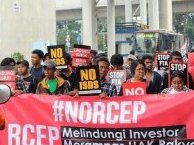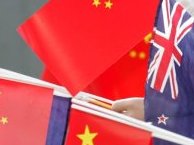New Zealand

The Conversation | 10-May-2024
Foreign investors wanting to protect their gains under the controversial new law could hold the country to ransom by threatening a dispute. As a result, they would constrain New Zealand’s democratic ability to exercise its sovereignty, and to protect te Tiriti rights.
Watson Farley & Williams | 30-Oct-2023
On 21 August 2023, ASEAN, Australia, and New Zealand brought several amendments, improvements and additions to their longstanding free trade agreement known as AANZFTA

AFTINET | 6-Feb-2023
The AFTINET submission provides evidence of the harmful use of ISDS over the last decade against public regulation on health, indigenous rights, the environment and most recently against policies to reduce carbon emissions.

Scoop | 29-Jun-2020
The Transpacific Partnership Agreement involves investor - state dispute settlement clauses, which large companies may use ISDS to sue governments for actions they took to stop the spread of the virus.

APHR | 10-Mar-2020
As ministers of the member countries of the RCEP meet for final negotiations over the trade agreement this week, regional lawmakers today expressed concern about the lack of parliamentary and public oversight of the deal, as well as its potential human rights impacts.
keywords:
ASEAN ,
Australia ,
bilateralism & multilateralism ,
China ,
intellectual property ,
investor-state disputes | ISDS ,
Japan ,
Korea ,
New Zealand

Scoop Politics | 6-Nov-2019
The CTU is concerned that the "upgrade" of the New Zealand-China Free Trade Agreement has not removed the threat of investor suits against the New Zealand government.

Scoop Politics | 31-Jul-2019
There is a high risk that New Zealand would still allow the investor to sue New Zealand in this expensive and discredited system of international investment arbitration

Scoop | 25-Mar-2019
Australia’s costs for tobacco case it won show why NZ must get rid of ISDS now.

Yellowhead Institute | 26-Feb-2019
Exception clauses amount to little more than tokenism, and short-change our full rights to determine trade relationships on our land and oceanic territories.

Daily Blog | 21-Feb-2019
The panel on a sustainable world at the hui in October 2018 on What an Alternative and Progressive Trade Strategy for New Zealand argued for major changes to address pressing environmental issues.


